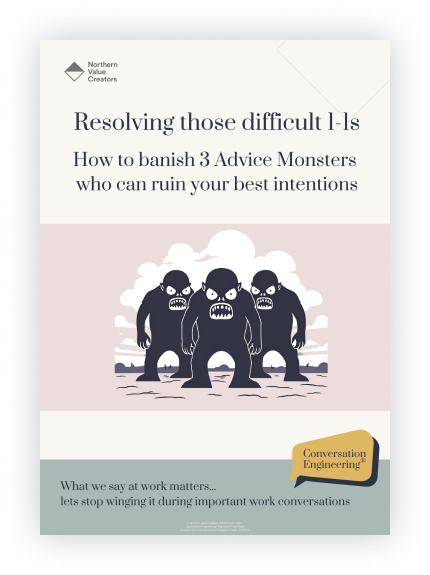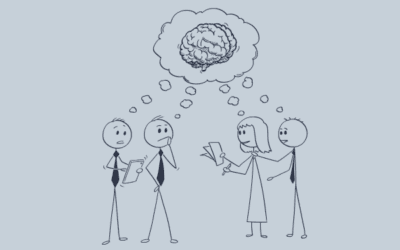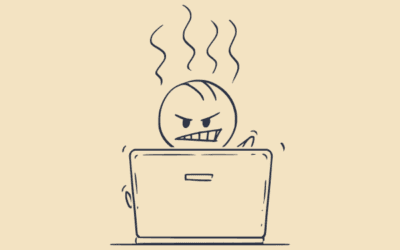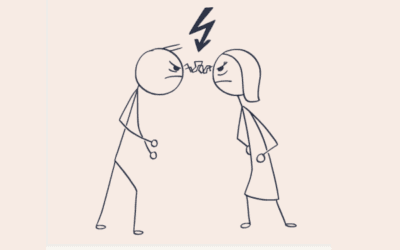Resolve difficult one to ones
Had enough of difficult 1-1s? Discover how to turn conversations with your most difficult direct reports into productive, growth-focused conversations. No fluff, just straightforward strategies that will make an immediate difference in your day-to-day. The Resolve Difficult 1-1s includes a toolkit based on 1000s of hours of coaching leaders of technical and professional services teams. Inside, you’ll find: Techniques to tackle tough conversations. Neuroscience backed strategies to shift behaviour. Tools to be more empathetic and coach like. A Reset Planner to transform your difficult 1-1s. Making small shifts in your 1-1s can lead to big transformations across the team. Start changing your 1-1s today.

Related Resources

Great conversations in 15 minutes
These questions have been designed to help you create more positive impact at work. When reflected on these five critical areas will help you steer clear of misunderstandings. Grab a pen, make a brew and take 15 minutes to think about a conversation you would like to have at work and have been putting off. It’s astonishing what a little preparation can achieve. Let our worksheet be your secret weapon for unlocking impactful conversations.

Recognise stress in your meetings
If we can learn the signs of stress we will become more aware of its impact on our conversations, we are able to respond better. If we brush stress under the carpet, or dismiss it as part of the job we risk ignoring its neurological impact. This guide offers practical advice to help recognise the ways stress can show up in your meetings and conversations – it’s not always obvious and the signs can be subtle. Learn to recognise the signs of stress in yourself and others, as this will make people’s behaviour easier to understand.

Disagreeing well
We like consensus in our teams. When people agree it feels good, all being on the same page is a comfy place to be – but is it too comfy? When we hurry towards consensus and rush to find an agreed solution are we missing something? Avoiding disagreement may quash new ideas, make speaking up difficult and lead to group think. Learn a key skill of a high performing team; disagreeing well.

